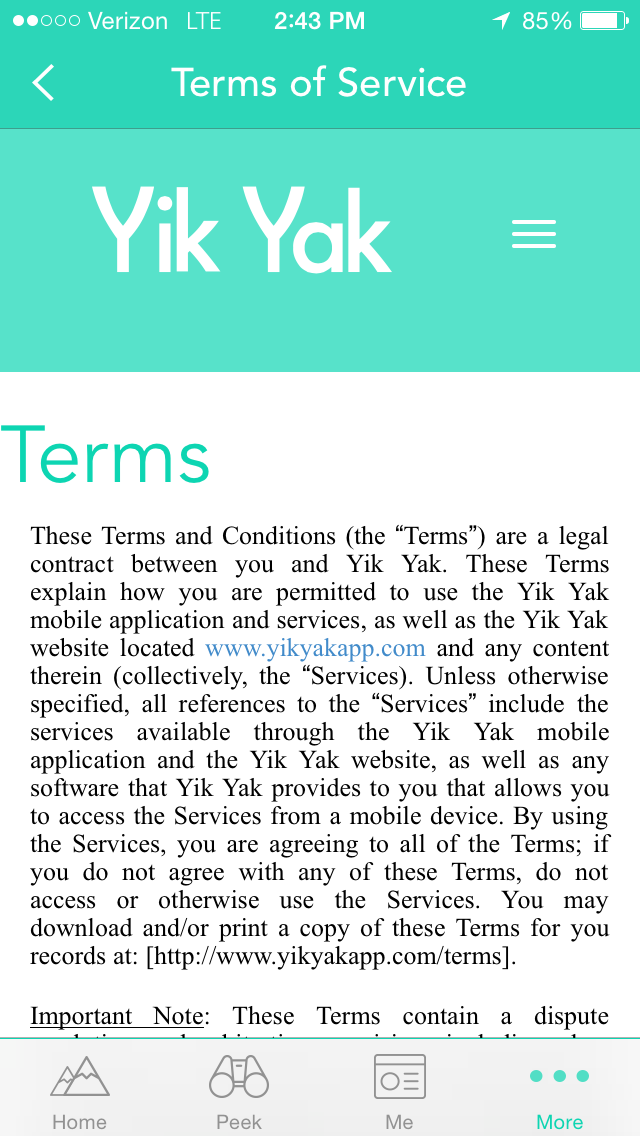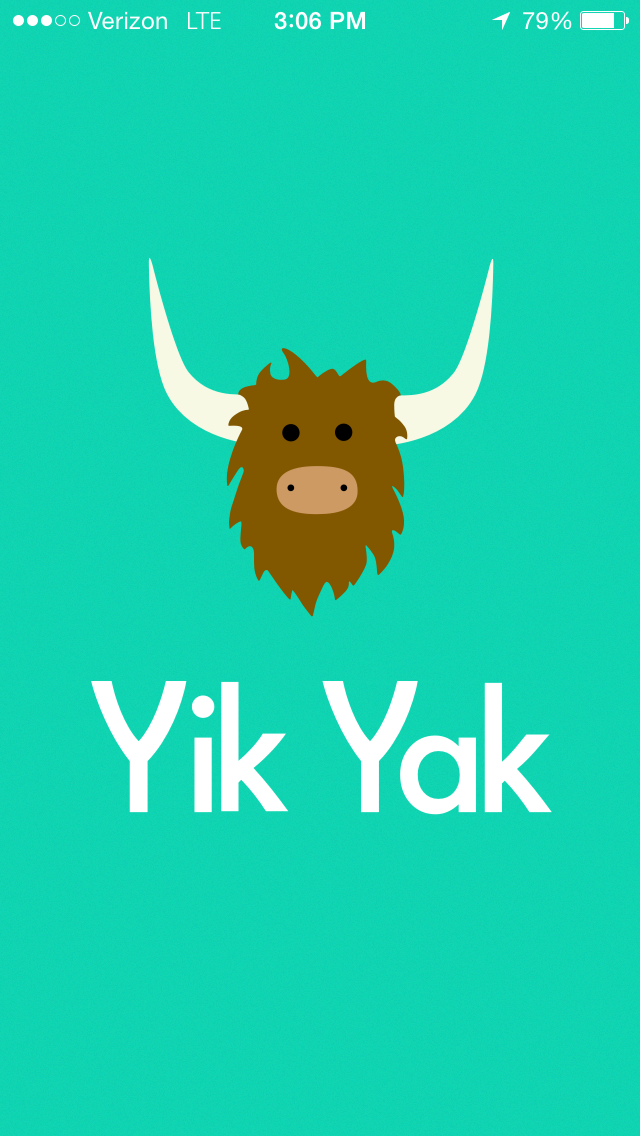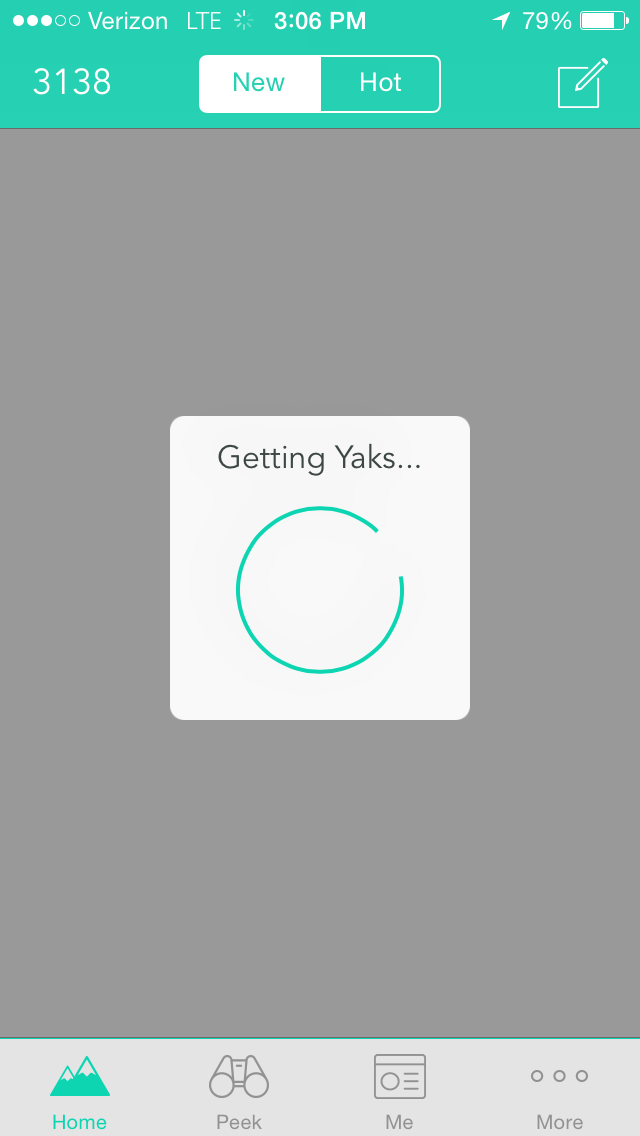



.




Rhetoric & Popular Phone Apps on College Campuses

Yik Yak
.
.
.
One of the newest and most popular phone applications on American college campuses is Yik Yak. Yik Yak is a free app that allows people to write anonymous, 200 characters posts that others who are geographically nearby can see and read. The app also allows people to “up vote” a post if they like it or “down vote” a post if they dislike it.
As well as being a form of entertainment, Yik Yak is greatly associated with rhetoric. The application can be used to post anything from personal opinions about current events to humorous jokes, all of which are filled with rhetoric. Along with being used as a way for people to use rhetoric in their writing and share that writing anonymously with others, the “up vote” and “down vote” buttons themselves are a medium of rhetoric.
The posts on Yik Yak are written with the purpose of persuading others to “up vote” the post. Often, the posts with the most ups use an appeal to pathos. An appeal to pathos is usually when an appeal is used to create emotion in the audience that moves the audience to action (Herrick 79). Most successful Yik Yak posts are either humorous, making the audience “up vote” them because they are funny, or about serious, emotionally driven topics that generally affect the whole geological area.
The rhetoric of Yik Yak’s “up vote” and “down vote” buttons is found in the buttons ability to create bandwagons. Bandwagon is a rhetorical device used to persuade others of an argument by claiming that the argument is a popular held opinion or belief (“A List of Rhetorical Devices”). When a post on Yik Yak receives a lot of “up votes” people tend to like that post because they see that others like that post as well. In fact, it’s not uncommon for people to even “Yak” that they “down vote” posts with low votes just because everyone else has too.
Along with being used to create bandwagons, the buttons show the importance of knowing the audience. Knowing the audience and respecting the audience is very important in rhetoric (Herrick 101). Yik Yak is a perfect example of how important the audience is to rhetoric. For Yik Yak, if someone writes something that the audience does not like, the post will get down voted and eventually deleted. When a post is written that the audience likes, the post will be up voted.
These different aspects of rhetoric associated with Yik Yak are important because they affect students on college campuses and other users. One problem with Yik Yak being used for emotional appeals is that it can be used not just for humor or bringing others together, but it can also be used for bullying. Bullying on the app has been widespread with examples ranging from the app being used to spread a sex tape at a New Jersey college to it being used for violent threats at Townson College (Dewey).Posts that use emotional appeals to evoke negative and hurtful feelings in the audience are the best examples of how the app’s rhetoric can have negative effects on its users and on college campuses. It’s not just the emotional appeals that can negatively affect users. The “up vote” and “down vote” buttons no doubt can contribute to bullying as well. The bandwagon effect created by the buttons can cause bystanders to join in on the bullying by “up voting” mean Yaks.
This means that while Yik Yak can be used in positive ways like bringing a community together or for harmless humor, the app can be used negatively for bullying.
Works Cited
“A List of Rhetorical Devices.” Web. 27 Nov. 2014.
Dewey, Caitlin. “How Do You Solve a Problem like Yik Yak?” The Washington Post. The Washington Post. 7 Oct. 2014. Web. 27 Nov. 2014.
Herrick, James A. The History and Theory of Rhetoric. Upper Saddle River, NJ: Pearson Education. 2013. Print.